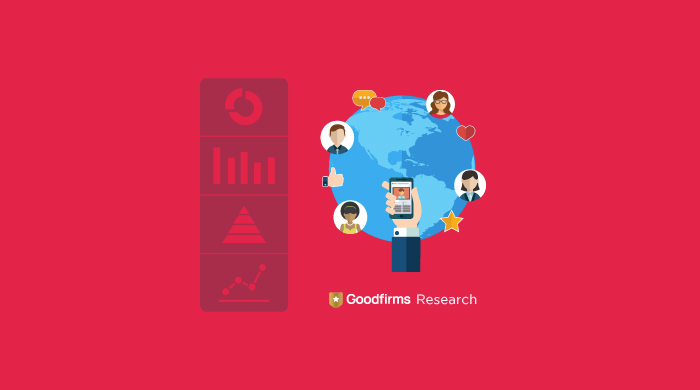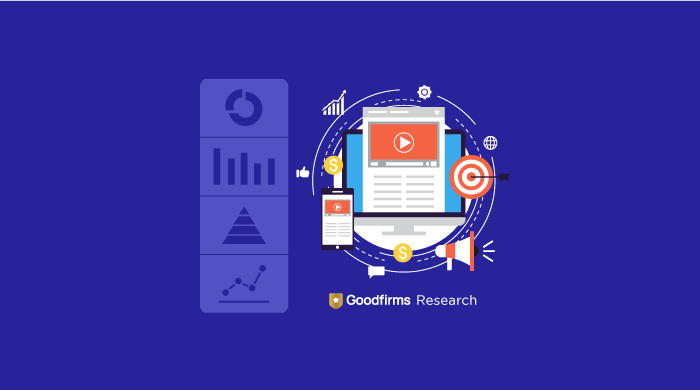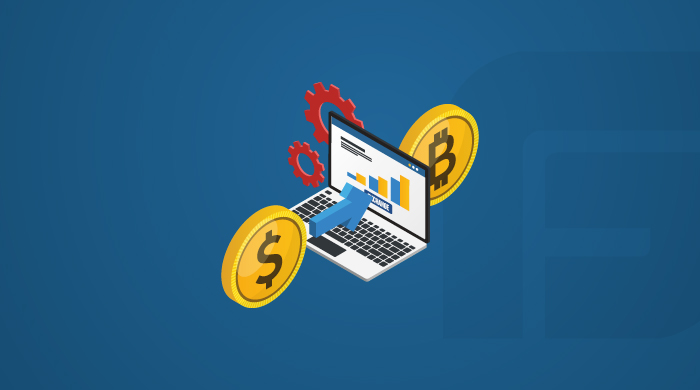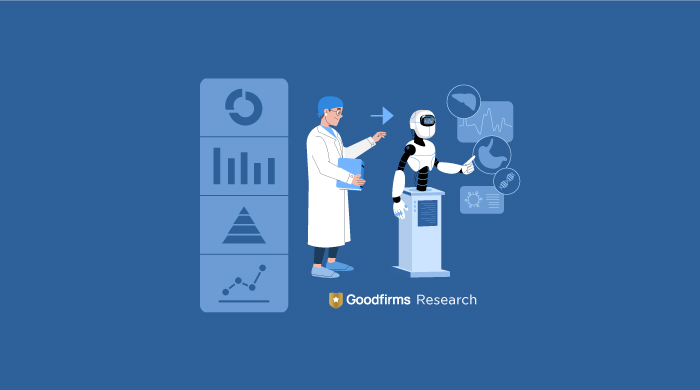Of all the digital marketing techniques, pay-per-click is heavily preferred for its convenience in measuring the effectiveness of online advertisements. And while machine learning and artificial intelligence have been booming the industry, Ad platforms, as well as PPC marketers, have developed a few advanced techniques and tools to increase the effectiveness.
These developments have empowered PPC campaign managers to automate not only big data analysis but also crucial aspects of PPC such as bidding, targeting, and even ad creation. But what are these advanced techniques? How to use them to optimize PPC campaign management? Read the below research to know the wisdom of top Gurus on the future of PPC marketing.
About The Survey
Recently, Goodfirms surveyed 200+ of PPC agencies and digital marketing experts to compile comprehensive research - Tips and Tactics for a Winning PPC Campaign Management, for marketers and small businesses to take guidance from. One of the most intriguing findings from PPC management research that gained tractions was -
- Marketers recognized some of the most efficient machine learning applications for PPC - performance analysis, smart bidding, and micro-moment targeting.
According to the Goodfirms listed digital marketing agencies, that were surveyed, one of the best ways to remain updated in the circles of PPC is to follow these Gurus. Even when you want to understand the applications of futuristic technologies such as artificial intelligence and machine learning.
Thus, our research team contacted PPC Gurus and a few more from the industry, to curate the top wisdom of several experts. For the research compilation, 10 of these PPC experts who contributed their wisdom with Goodfirms are as follow:
The Detailed Findings
The PPC Gurus were asked two questions -
1. Machine learning would create efficient PPC methods in the form of - Performance Analysis, Smart Bidding, and Micro-Moment Targeting. Which one do you think would be prevalent in 2019? Your thoughts on it?
2. Any other specific way machine learning or artificial intelligence can be used in PPC marketing? How?
The Gurus voted among the mentions of industry professionals, while suggested some of the other ways how machine learning is picking up the wind in PPC practices. Here are some of the top AI applications:
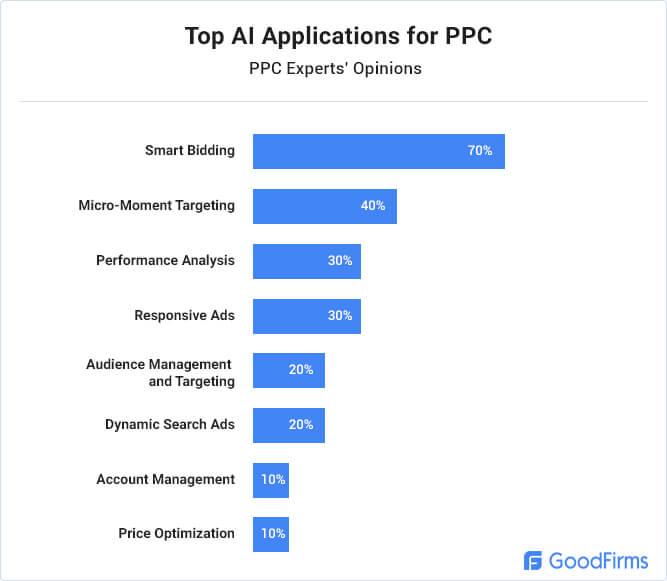
Following are the detailed arguments, why PPC Gurus endorsed these several AI applications for pay-per-click campaign management:
Smart Bidding
Kirk Williams, owner at Zato Marketing and a PPC guru for years, illustrates his support for smart bidding, “My reasoning is 2-fold, first, Google and Bing's bidding algorithms continue to improve as engineer expertise and understanding grows, and as they continue to be fed more data (remember, with anything algorithmic, it's only as good as the data it receives). I (and many other Professional PPCers I know), have been hesitant for a while to run Smart Bidding too widely in our accounts, simply because we have tested them over and over again and been able to beat the algorithms because of our intimate knowledge of the platform and various buttons we can push. However, we have been seeing Google increasingly demonstrate its ability to incorporate even more bidding triggers into its algorithms and make smarter decisions, and 2019 will be the year more of us entrust ourselves to them.
The second reason, is that frankly, Google and Bing are positioning Smart Bidding more aggressively to advertisers.”

He further adds, “Manual CPC options are decreasingly prominent in the campaign building process and I expect the adoption rate of Smart Bidding to leap forward in 2019 with newer advertisers simply because of this positioning by Google.”
Services innovation strategist at WordStream, and one of the most influential PPC experts, Navah Hopkins supports the argument, “I’m a big believer in delegating ‘grunt-work’ tasks to machine learning (bidding, alerts to performance opportunities, etc.) because those tasks lend themselves to ‘if this, then that’ relationships. All ad networks (Google, Bing, Facebook) have invested in perfecting their smart bidding tools, and the thresholds for leveraging conversion oriented bidding have gotten even more accessible (Target CPA used to require 100 conversions in a 30 day period – now it can deliver acceptable performance once a campaign hits 30 conversions in a 30 day period).
Additionally, smart bidding is now the default, so it takes an experienced advertiser knowing to opt out, as well as having the time and confidence to manage their bids manually.”

She goes on to state, “If the answer is no, own that your time is better served working on creative, analysis, and scaling initiatives.”
While supporting the developments, Gianluca Binelli, a PPC hero and the founder of Booster Box, recalls his efforts, “Bidding will improve a lot. Google has been putting in a lot of effort into the machine learning front. At Booster Box, we focus on rigorous scientific measurement. From our experiments, we have concluded that some of the Machine Learning-based features don't always live up to the expectations.”

Ed Leake, who has been developing AI-powered optimization tool for agencies & marketers at AdEvolver, shares his experiences, “For it [Machine Learning] to work you need to feed it a lot of data and allow it time to make mistakes (learn) before it comes good.”

He suggests, “Smart bidding should be tested against any manual or other automated bidding to see if an improvement can be found. Running a 50/50 experiment is simple, and roughly speaking, accounts with over 100 conversions per month should see a statistically significant result within the first 4-6 weeks. Patience is key as there’s still a learning phase where performance can waver.”
PPC influencer and agency director at Genie Goals, Luca Senatore, supports smart-bidding, “The ability to bid more accurately, not only for the right keywords at the right time, location, device, improves as we have more data to work with. Manual, or even automated bidding which limited to one account in its vertical, present a whole host of problems, including the fact that it’d only look at a small subset of users. The more data, the better the ability to predict the probability of conversion.”

However, Martin Roettgerding, head of SEM/SEA at Bloofusion and a notable PPC Hero, have a different view on the matter, “It [Smart Bidding] used to be a story about a sophisticated algorithm, evaluating millions of signals and calculating bids in real time. These days, the story is all about machine learning. As someone who uses Smart Bidding, I don’t see the difference in the results. There’s no point in our data, where things improved dramatically because Google brought machine learning into Smart Bidding.”

Micro-Moment Targeting
Patrick Gilbert, director of digital advertising services at AdventurePPC - one of the best PPC agencies around, explains the concept, “Google's algorithms might find that users that are searching for hotels immediately after booking a flight generally convert at a rate much greater than average. In that case, advertisers should absolutely be willing to increase their bids to capture that traffic. However, this is behavioral data that Google's algorithms have access to, but we mortals do not.”

Patrick adds, “This is just one simplistic example. The real trends that are uncovered by machine learning are multi-layered and likely incomprehensible.”
However, Jeff Sauer, owner of Jeffalytics and a PPC hero, expresses his worries regarding the developments. He thinks that artificial intelligence and machine learning will be further enabled, once Google makes more variables available to advertisers through their API.

Duane Brown, managing partner at Take Some Risk and a PPC expert, explains the flaw in the theory- “This would be hard to do 100%, due to privacy. Having more data around keywords & habits... Knowing if people searched for X, they also searched for Y and B... Plus they went to these sites..."

Duane explains, “It's all very minority report and predicting what is going to happen next but that would be very cool as a marketer. I'm not sure if I would love that as a regular person mind you. As much as thinking about the future and what we want is important, we sometimes have to ask ourselves if we should be doing something. There is a person behind every click and impressions.”
Performance Analysis
By the virtue of machine learning, data processing can be done on a scale which was not possible before; and that too in real-time. Perfect for PPC campaign analysis, where traditionally, marketers need to go through zillions of data while also making sense out of it.
Larry Kim, who has been busy developing marketing chatbots at MobileMonkey and being a PPC guru, thinks that Performance Analysis would be prevalent in 2019.

Patrick Gilbert expands the idea, “Performance Analysis also presents a large opportunity, but this initiative needs to come from the ad platforms. Google, Facebook and other ad platforms that are heavily leaning on automation are not transparent with the specific data points that would be useful for advertisers.
This is a move away from traditional A/B split tests, where you'd determine that Headline B is more effective than Headline A and shut off Headline A. With Smart-Creative, the algorithms will determine that Headline A might still be effective for a percentage of your target audience, and you can run endless variations of ads over time that optimize for deep customer niches and micro-moments.”
He further says, “Ideally, advertisers would be able to tap into these insights and create whole new campaigns or landing pages around them. We are confident that we will eventually have access to this data, but it's currently a missed opportunity and is preventing us from implementing this across the board.”
Duane Brown does feel that we would continue to see performance analysis be the top one people go with because of historic data. But he re-assesses our role, as humans, amidst all the technological developments.
Although, he further adds, “That does not mean we won't continue to see ad platforms and vendors continue to work on and release tools for targeting and bidding but there is still a 50/50 chance that they working.”
Responsive Ads
A/B testing consuming a lot of time and money? Machine learning is here to the aid.
Create multiple headlines, descriptions, and banner images for your online ad, and the algorithm would check their combinations on real customers. Over time, it would optimize an ad copy which would resonate with individual users. That is precisely what responsive ads are about.
In simpler words of Patrick Gilbert, “Both platforms have released Smart-Creative features, Responsive Search Ads in Google and Dynamic Creative in Facebook, where the advertiser implements up to 5 different headlines, 5 different descriptive texts, 5 different images, etc., and the algorithms will optimize the placements of these ads in a way that improves overall efficiency.
Machine learning is most valuable as it relates to scaling your advertising efforts. Most advertisers are able to profitably convert traffic from bottom-funnel keywords, but are unable to profitably bid on keywords that are more broad and vague. There is a much larger proportion of potential customers that exist at the top of the funnel, but it's very challenging to profitably acquire and convert these users using traditional or manual campaigns.”
Try as many headlines, descriptions, and images as possible. One, more options means more combinations to try. Two, some of these headlines could bring in unexpected customers.
Luca Senatore envisions even further, “How about the ability to auto-write PPC ad-copy before sales season such as Black Friday, Boxing Day etc. Imagine, as advertisers, if your ad-copy changed to Black Friday specific copy with the discounts you decided to apply based on the Discount Modelling Machine. Mecca!”
Google and Facebook are still hosting the beta versions of the feature, but marketers are advised to sail the winds early, cause when this would go trendy or even imperative, just about time, it would be you who can keep up with the algorithms.
Audience Management and Targeting
Audience management and targeting have always been tricky, almost every digital marketer would agree. It requires loads of data and reliable technology to segregate audiences which have high-intent of buying a service or product. But we have seen a lot of AI applications for effective targeting since Facebook’s Lookalike Audiences, Google Similar Audiences, and Bing’s In-Market Audiences. Still, marketers have to rely on the black-box algorithms of these ad platforms.
According to Larry Kim, who has been researching on Google’s search algorithms from years now, “AI and/or ML are used extensively by Google and Facebook in audience targeting for display and social ads, to help predict which types of people will engage with a particular ad.”
Gianluca Binelli points out, “This is something Facebook has utilised really well with its Lookalikes Audiences, but Google has some work to do when it comes to its equivalent Similar Audiences. We will see some interesting changes in 2019.”
But, Martin Roettgerding notes the limitation, “I’ve seen promising ideas with regard to classification problems: How should a search term be handled? Where does a new keyword fit into an existing campaign? Which category should be chosen for a product?”
“In any case, advertisers have to work within the limits that Google, Bing, and others set for us. Even if we use machine learning to create fantastic tools for, say, micro-moment targeting, we still won’t be able to make any real-time decisions on bids or ad copy. This can lead to fantastic things, but some limitations still apply.”, Martin adds.
Dynamic Search Ads
The search engine crawlers find and target search terms that are related to the content of your website; while DSA generates real-time headlines, ad copies, and landing pages which is contextual to the searched term. This effectively fills in with the missing keywords and syncs ads real-time with your offerings.
Presently, Dynamic Search Ads are offered by both of the search engine giants’ ad platforms - Google Ads and Bing Ads. Dynamic Search Ads is easily the best way to find customers for precisely what you offer.
Navah Hopkins shares her views - “DSA is my favorite way to educate e-commerce initiatives (able to see which products are actively search and what their auction prices are), as well as ways to run data acquisition for real estate, travel, and auto industries. Because DSA focuses on topics rather than keywords, the campaign format allows you to cover thousands of pages without having to dedicate budget to every idea and way of searching. The machine picks search result pages (SERPs) that lend themselves to the topic, as well as providing insights on whether the site is easily crawled.”
Ed Leake suggests, “When using DSA always negative your exact match keywords so it doesn’t steal performance away from your core ‘known good’ campaigns. Allow DSA to do the leg work and find longer tail and unique search terms.”
He goes on further, “Getting the balance right can shave off hours of account management each month, allowing the advertiser to focus on the strategy and the creative side – not get bogged down in structure and data.”
Due to this, it's often teased as an amazing way to capture unexpected traffic and comes handy when you need to expand your scope of the target audience.
Account Management
Kirk Williams has been a promoter of machine learning as an aide to assist in the analysis, strategy, and client-facing applications. Of these, automated account management could be a potential platform for campaign managers to see off repetitive work.
According to Ed Leake, "AI should certainly be part of the account management picture. Not only bids management and ads schedule, but it can also be used to take many of the data-heavy tasks off our plate. We’re seeing performance gains (and big-time saving) is in managing keywords, queries and budget delivery. Making sure an account is on budget and doesn’t overspend, whilst ensuring what budget it does have is prioritized, is key to success."
He goes on to explain, “A task that can take many hours of analysis for us can be run and reported by AI in minutes. For example, a campaign has seen its impressions drop – but why? Was it a change earlier in the month, was a mistake made, has a certain keyword tanked, been underbid or perhaps a negative term applied that hasn’t helped? AI can quickly spot the trend and highlight the specific cause, whereby the human can assess the impact and correct course without the overhead of deep analysis.”
So in 2019, if advertisers are still manually optimizing keywords, bids, and budgets, they’re losing a lot of time in doing so. Those areas should be handed over to artificial intelligence to manage and increase efficiency. The human plays the role of overseer.
Price Optimization
As Jeff Sauer points out that machine learning is the future at Google, and we’re already seeing it make headway in the world of Google Ads.
Having said so, Luca Senatore’s idea to take machine learning further into price optimization is quite lucrative.
Predictive Modeling, especially in machine learning, employs data mining and probability statistics to forecast outcomes for an event. Though the model can't bring efficacy directly to the online ads, it can be very well used to optimize the most crucial one of the 4 Ps of marketing matrix - Price.
Luca explains, “Before sales periods, estimating the discount percentage most likely to bring the best results [can be employed], through modeling algos. One of our customers has had the best Black Friday ever, not only year on year but also much better than their peers. They discounted their high-end footwear by 25%. What would have happened if they discounted 20%? Or 30%?"
He further adds, “We can, to a degree, achieve the mechanics of this [optimization] through statistical analysis and clever algos, though we’d still require larger datasets in the same vertical to make optimal decisions.”
Such datasets could be past sales information, even consumer behavior & trends, which could be used to set-up a predictive model. And a set of different affordable discounts could be used as input to check different reactions for each number. This would actually enhance present pricing models by offering dynamic, personalized offers, while businesses can still preserve their profit.
Conclusion
AI and Machine learning are here for PPC marketing, as it is for everything else. So, don't limit what you can use it for, accept it (of course after testing), and develop it for smarter bidding, hyper-targeting, efficient analysis, better ad creation, superior audience management, and price optimization among many others.
The smart PPCer of 2019 will utilize machine learning as a helpful and competent intern, running tasks that would otherwise be a time-suck because of their repetitive nature, and freeing the PPCer up to focus on the bigger picture aspect of value he or she brings to the table.
For service-seekers who need to update their online advertising, Goodfirms offer a list of top PPC agencies that could be hired. And for businesses that are eager to step up with advanced tools, you might check out Goodfirms list of top artificial intelligence (AI) companies, that delivers machine learning solutions across various disciplines.





